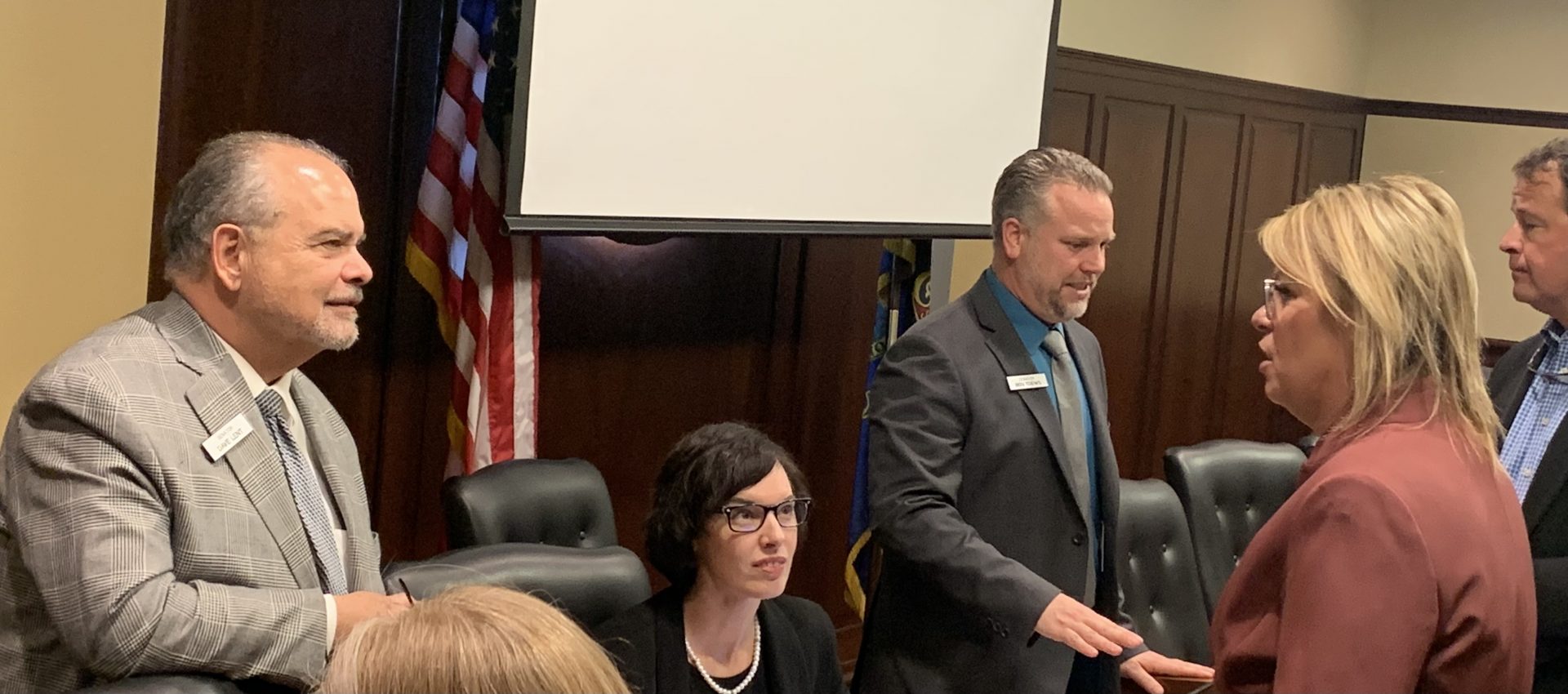
For Idaho’s new superintendent of public instruction, private schools are a political quagmire.
Debbie Critchfield stepped right back into the muck Monday.
Appearing before the Senate Education Committee — and fielding a question from Sen. Tammy Nichols, R-Middleton, a stalwart school choice advocate — Critchfield seemed to make her strongest statement on the issue yet: “I am not prepared to be an advocate for public funds going to private schools.”
Seems clear. Except it isn’t. In a statement Wednesday, Critchfield repeated a hedge she had made before the House Education Committee earlier Monday. She said she was open to expanding the publicly-funded Empowering Parents grants program to support scholarships for private schools.
Confused yet? Confused still?
Let’s try to keep it simple.
Strip away all the semantics and the terminology — education savings accounts, private school scholarships, vouchers — and you’re left with a binary question. Should public money support non-public education? Yes or no.
What the 2023 Legislature says — yes or no — will be its defining statement on education. It will also say a lot about Idaho Republicans, a house divided on school choice.
Critchfield the candidate spent months parsing her words.
- During an Idaho Business for Education forum in March, Critchfield said she opposed shifting money away from public schools. But she left the door open to allowing money to follow students, which is essentially what an education savings account or voucher program would do. “I’m a yes and a no on this. This is an unsettled issue in the state that needs some leadership.”
- In an Idaho Education News candidate questionnaire during the GOP primary campaign, Critchfield said, “I am open to discussions about funding more choice, but it cannot defund public schools or come at the expense of Idaho’s rural school districts.”
- In an Idaho EdNews questionnaire during the fall general election, Critchfield said she believes there are ways to “satisfy” Idahoans who want to put public money into private schools, without harming rural schools. But she added, “We can’t continue to slice up the same pie.”
Critchfield’s response to Nichols drew predictably sharp criticism from the Idaho Freedom Foundation, which has been rallying Nichols and like-minded lawmakers behind school choice. The hardline Freedom Foundation isn’t just blasting Critchfield for opposing school choice. The group is accusing Critchfield of changing her tune on the issue — something Critchfield denies, not surprisingly.
For Critchfield, this is a special kind of political mess. Another news item from Monday made that all the more clear — the Freedom Foundation announced that it had hired Branden Durst as its senior analyst for education policy research. Durst finished second to Critchfield in the May Republican primary.
Durst quickly went to Twitter to throw shade at Critchfield. “To conservatives who were mislead (sic) by (Critchfield) in the primary by her lip service to support for school choice, I am sorry,” wrote Durst, pointing out that the Republican Party platform endorses education savings accounts.
And Durst ought to know. In July, two months after losing in the primary, Durst sponsored the GOP’s education platform.
It’s not that the 2026 GOP primary race is under way — or at least let’s hope not. It’s more like the 2022 GOP primary never ended.
Meanwhile, Gov. Brad Little is facing similar political pushback.
His Jan. 9 State of the State address spelled out an aggressive public education budget and extolled existing education options, from public charter schools to homeschooling. He didn’t talk about expanding the menu of options, to the dismay of the hardliners within his own party.
“Idaho DOES NOT have universal school choice, instead we have a government school system that rewards the teaching of woke agendas which are full of radical gender identity and liberal indoctrination,” said the Legislature’s Idaho Freedom Caucus, co-chaired by Nichols and Rep. Heather Scott, R-Blanchard.
State GOP chairwoman Dorothy Moon chided Little for failing to advance “conservative policies” in education. “If Republican governors can push bold reforms in Florida or Virginia or Missouri, the same can be done in Idaho, as well,” she said.
Little’s one nod to school choice is stay-the-course stuff. He proposed continuing making permanent the Empowering Parents grants program — now funded with $50 million in federal COVID-19 aid money — with $30 million a year from state sales taxes.
Families can use the grants for any number of things: a new computer, a more reliable Internet connection, tutoring or therapy. But they can’t use the money to cover private school tuition.
While Critchfield is open to “strengthening” the Empowering Parents program to cover private school tuition, Little doesn’t seem sold.
“Gov. Little has said he supports the abundance of school choice options currently available to Idaho families and generally does not support efforts that divert taxpayer dollars away from our constitutional and moral obligation to fund public school education in Idaho,” spokeswoman Madison Hardy said Wednesday.
Less than two weeks in, the 2023 legislative session is lurching into gear, especially on the education front. The Joint Finance-Appropriations Committee has dabbled in education spending issues, although they’ll hear from Critchfield and college and university presidents next week. The education committees have done nothing of note — instead hearing a procession of boilerplate presentations.
But Monday’s exchange between Critchfield and Nichols deviated from the safe and the scripted. It offered a snapshot of the school choice schism within the GOP, a split that could divide legislative hardliners and moderates.
This is the education fight of the session. And a proxy battle for larger tensions within the Republican Party.
Each week, Kevin Richert writes an analysis on education policy and education politics. Look for it every Thursday.
More reading: For more about the divisions within the Republican Party, and the looming school choice debate, here are columns from veteran Idaho political observers Chuck Malloy and Randy Stapilus.
